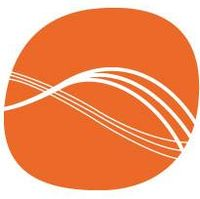SciBase's Bold Moves: Expanding Access to Melanoma Detection
June 10, 2025, 10:21 pm

Location: Sweden, Sundbybergs kommun
Employees: 11-50
Founded date: 1998
Total raised: $8.58M
In the world of healthcare, access is everything. SciBase Holding AB, a Swedish company, is making waves with its innovative approach to melanoma detection. The launch of the Nevisense Self-Pay Program in the United States marks a significant shift in how patients can access vital skin health technology. This initiative is not just a business strategy; it’s a lifeline for those at risk of melanoma.
Melanoma rates are climbing. The urgency for early detection has never been more pressing. Traditional insurance models often leave patients in limbo, waiting for approvals that can delay diagnosis. SciBase’s self-pay model cuts through the red tape. It allows patients to access the Nevisense test directly, bypassing the hurdles of insurance. This is a game-changer for dermatology practices across the U.S.
Nevisense is not just another diagnostic tool. It combines artificial intelligence with advanced electrical impedance spectroscopy (EIS) technology. This powerful duo enhances diagnostic accuracy, allowing dermatologists to make informed decisions at the point of care. With the self-pay program, clinicians can integrate Nevisense into their workflows without waiting for insurance approvals. This means patients at risk for melanoma can receive timely evaluations and interventions.
The self-pay initiative is a response to a growing demand from both patients and dermatologists. As awareness of melanoma increases, so does the desire for accessible testing. Patients want peace of mind. Dermatologists want to provide the best care possible. SciBase is stepping up to meet these needs.
Pia Renaudin, the CEO of SciBase, emphasizes the importance of this program. It’s not just about expanding market reach; it’s about saving lives. The self-pay model aligns with the company’s mission to minimize patient suffering. By facilitating early detection, SciBase is not only improving individual outcomes but also reducing the long-term burden on healthcare systems.
The Nevisense test is already making strides in Europe. Recently, SciBase secured its first sales order in Italy, marking a significant milestone in its European expansion strategy. The order came from Studio Fabbrocini, a prominent dermatology center in Naples. This partnership is a testament to the growing recognition of Nevisense as a vital tool in the fight against melanoma.
Italy’s healthcare landscape is evolving. The registration of Nevisense in February and the subsequent launch of the Italian version in April reflect a commitment to innovation. The collaboration with local partners like Kilabs ensures that Nevisense is deployed effectively. This partnership is crucial for navigating the complexities of the Italian healthcare system.
The momentum is palpable. SciBase is not just expanding its footprint; it’s creating a network of support for dermatologists and patients alike. The company’s focus on early detection is resonating across borders. As melanoma becomes a global concern, the need for accessible solutions is paramount.
In the U.S., the self-pay model is expected to attract a diverse range of patients. Those without insurance, underinsured, or simply seeking faster access to testing will benefit. This inclusivity is vital in a healthcare landscape often marred by disparities. SciBase is paving the way for a more equitable approach to skin health.
The implications of this initiative extend beyond individual patients. By improving access to early detection, SciBase is contributing to a broader public health goal. Early diagnosis can lead to better treatment outcomes, ultimately reducing healthcare costs associated with late-stage melanoma. This is a win-win scenario for patients and healthcare systems alike.
As SciBase continues to innovate, the focus remains on patient care. The self-pay program is just one piece of a larger puzzle. The company is committed to expanding payer coverage and reimbursement options. However, the urgency of early detection cannot be overstated. The self-pay model is a proactive step in addressing this critical need.
In conclusion, SciBase is redefining access to melanoma detection. The Nevisense Self-Pay Program is a bold move that prioritizes patient needs. With its innovative technology and commitment to early detection, SciBase is not just a player in the healthcare market; it’s a leader in the fight against melanoma. As the company expands its reach, the hope is that more patients will gain access to the life-saving technology they need. The future of skin health is bright, and SciBase is at the forefront of this transformation.
Melanoma rates are climbing. The urgency for early detection has never been more pressing. Traditional insurance models often leave patients in limbo, waiting for approvals that can delay diagnosis. SciBase’s self-pay model cuts through the red tape. It allows patients to access the Nevisense test directly, bypassing the hurdles of insurance. This is a game-changer for dermatology practices across the U.S.
Nevisense is not just another diagnostic tool. It combines artificial intelligence with advanced electrical impedance spectroscopy (EIS) technology. This powerful duo enhances diagnostic accuracy, allowing dermatologists to make informed decisions at the point of care. With the self-pay program, clinicians can integrate Nevisense into their workflows without waiting for insurance approvals. This means patients at risk for melanoma can receive timely evaluations and interventions.
The self-pay initiative is a response to a growing demand from both patients and dermatologists. As awareness of melanoma increases, so does the desire for accessible testing. Patients want peace of mind. Dermatologists want to provide the best care possible. SciBase is stepping up to meet these needs.
Pia Renaudin, the CEO of SciBase, emphasizes the importance of this program. It’s not just about expanding market reach; it’s about saving lives. The self-pay model aligns with the company’s mission to minimize patient suffering. By facilitating early detection, SciBase is not only improving individual outcomes but also reducing the long-term burden on healthcare systems.
The Nevisense test is already making strides in Europe. Recently, SciBase secured its first sales order in Italy, marking a significant milestone in its European expansion strategy. The order came from Studio Fabbrocini, a prominent dermatology center in Naples. This partnership is a testament to the growing recognition of Nevisense as a vital tool in the fight against melanoma.
Italy’s healthcare landscape is evolving. The registration of Nevisense in February and the subsequent launch of the Italian version in April reflect a commitment to innovation. The collaboration with local partners like Kilabs ensures that Nevisense is deployed effectively. This partnership is crucial for navigating the complexities of the Italian healthcare system.
The momentum is palpable. SciBase is not just expanding its footprint; it’s creating a network of support for dermatologists and patients alike. The company’s focus on early detection is resonating across borders. As melanoma becomes a global concern, the need for accessible solutions is paramount.
In the U.S., the self-pay model is expected to attract a diverse range of patients. Those without insurance, underinsured, or simply seeking faster access to testing will benefit. This inclusivity is vital in a healthcare landscape often marred by disparities. SciBase is paving the way for a more equitable approach to skin health.
The implications of this initiative extend beyond individual patients. By improving access to early detection, SciBase is contributing to a broader public health goal. Early diagnosis can lead to better treatment outcomes, ultimately reducing healthcare costs associated with late-stage melanoma. This is a win-win scenario for patients and healthcare systems alike.
As SciBase continues to innovate, the focus remains on patient care. The self-pay program is just one piece of a larger puzzle. The company is committed to expanding payer coverage and reimbursement options. However, the urgency of early detection cannot be overstated. The self-pay model is a proactive step in addressing this critical need.
In conclusion, SciBase is redefining access to melanoma detection. The Nevisense Self-Pay Program is a bold move that prioritizes patient needs. With its innovative technology and commitment to early detection, SciBase is not just a player in the healthcare market; it’s a leader in the fight against melanoma. As the company expands its reach, the hope is that more patients will gain access to the life-saving technology they need. The future of skin health is bright, and SciBase is at the forefront of this transformation.
